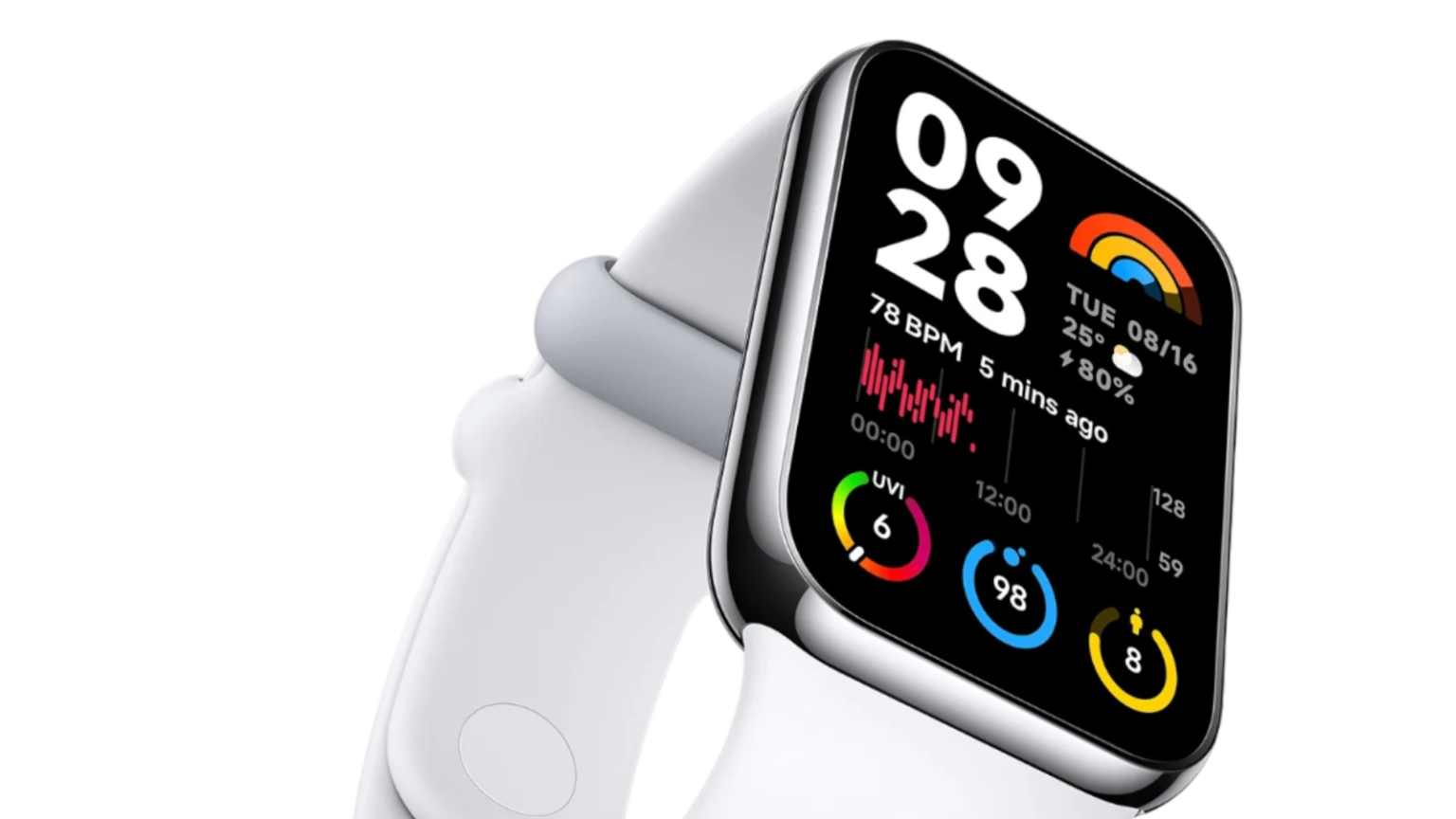The fitness tracker market is saturated, but Xiaomi’s Smart Band line consistently stands out due to its feature-to-price ratio. The new Smart Band 8 Pro carries on that tradition, offering a larger display, improved software, and an expanded feature set – all for around AED 255. So, here’s what I experienced after using it for a few weeks and living with the Xiaomi Smart Band 8 Pro.
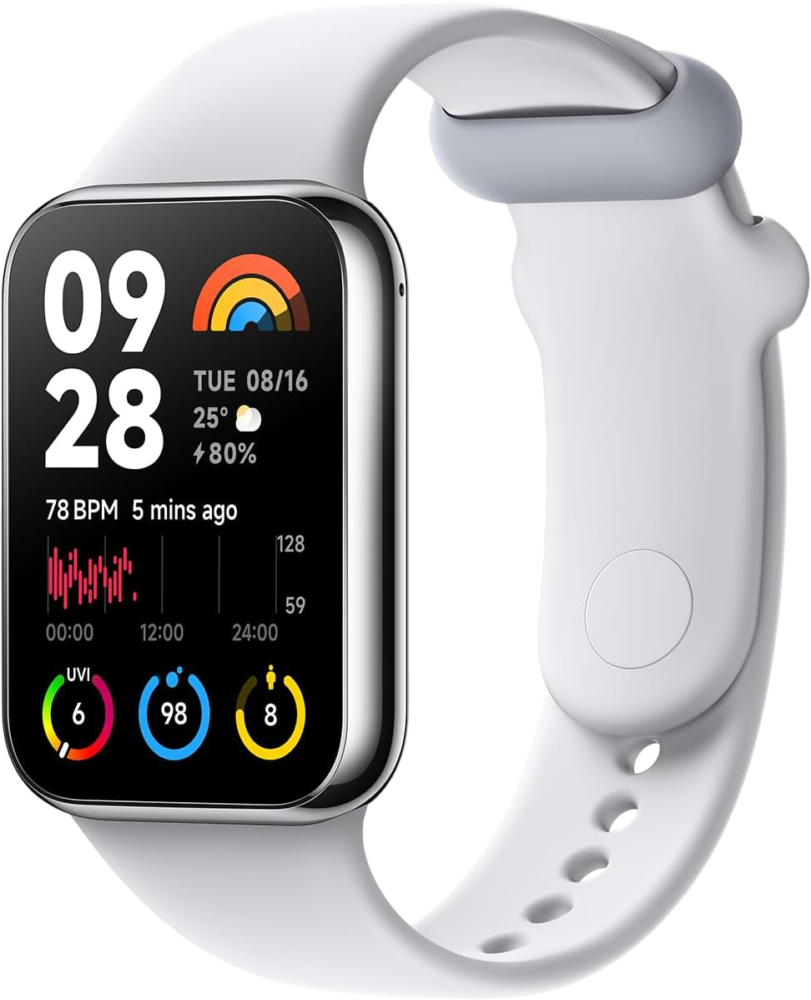
Design: When a Fitness Band Wants to Be a Smartwatch
Xiaomi’s ‘Pro’ bands have always walked the line between classic activity trackers and smartwatches. The 8 Pro continues this trend, feeling more substantial and “watch-like” than the standard Smart Band 8. If you want something sleek and unobtrusive, this might not be it. Personally, I like the look.
The key upgrade is the display. It’s now 1.74 inches – noticeably larger than the Band 7 Pro. Crucially, it now runs at 60Hz, making navigation and menus feel smooth, a nice touch for a budget device. It’s bright enough for sunny days, though the always-on display (AOD) can seem a bit dim. The plastic construction is sturdy enough but doesn’t scream ‘premium’, as expected in this price range.
The biggest design flaw that carries over from last year is the lack of any physical buttons. Navigating settings menus or trying to end workouts all rely solely on screen swipes, which can get frustrating.
The plastic construction is sturdy and lightweight, contributing to its all-day comfort. However, it lacks a luxury feel compared to metal or even silicone-coated bands used by competitors. The glossy finish adds a touch of style, but it’s a fingerprint magnet.
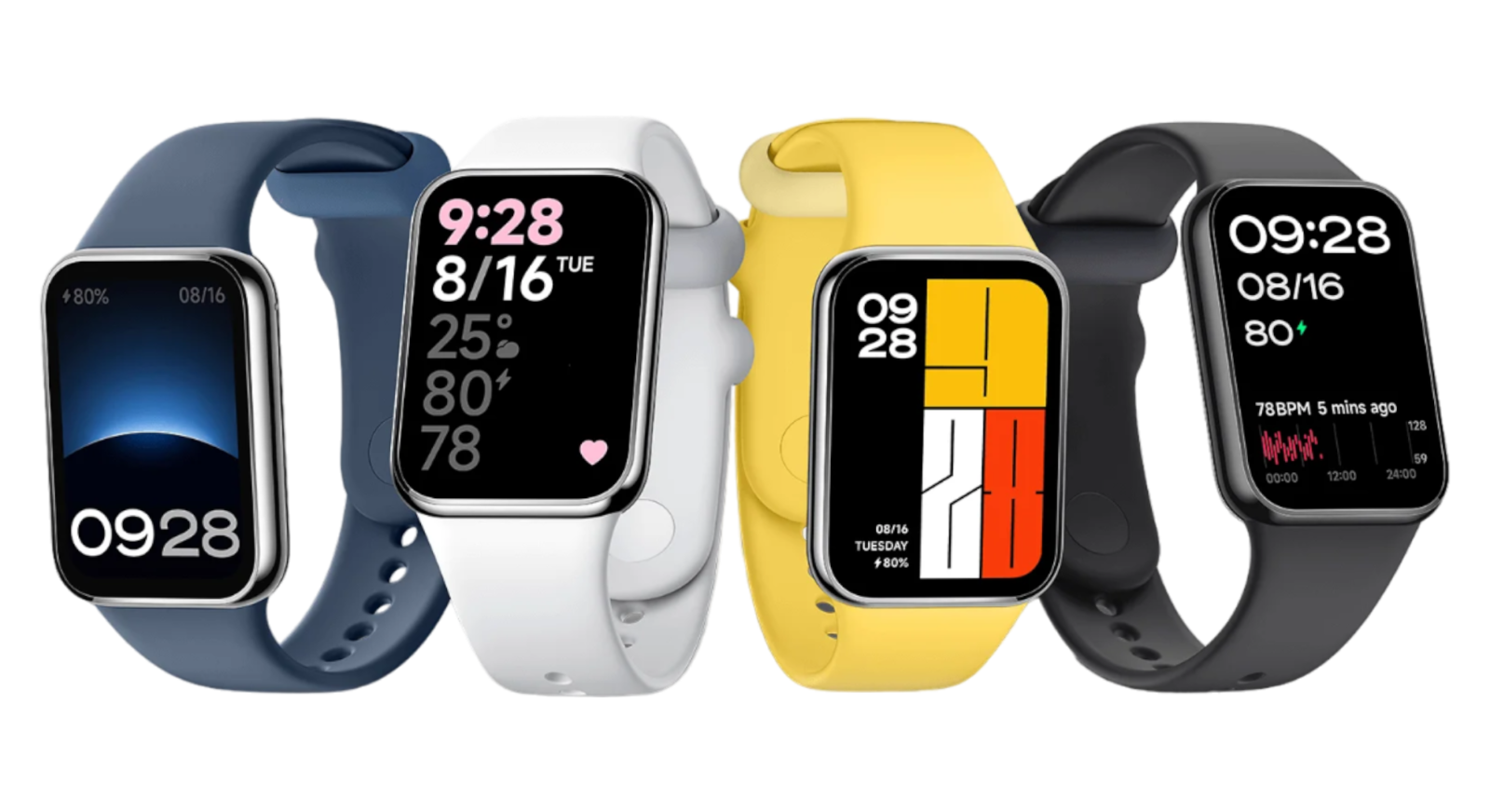
Software and User Experience: Progress, But Still Basic
Xiaomi has added widgets to the Band 8 Pro’s UI, providing quick access to key info and controls. While they’re useful, I wish you could customize them directly on the device – you’re stuck with what Xiaomi provides. Apart from this, the software is largely the same experience as other Xiaomi wearables.
The core fitness tracking functionality is here (step counting, calorie estimations, etc.). Accuracy seems slightly improved over the standard Band 8. It still undercounts steps compared to trackers from the likes of Fitbit, but the difference isn’t as stark.
What it lacks, as always, is the “smart” part of the smartwatch equation. Support for contactless payments, offline music playback, app integrations, and cellular connectivity are all absent. This is understandable given the price, but if these features are important to you, the 8 Pro won’t be a good fit.
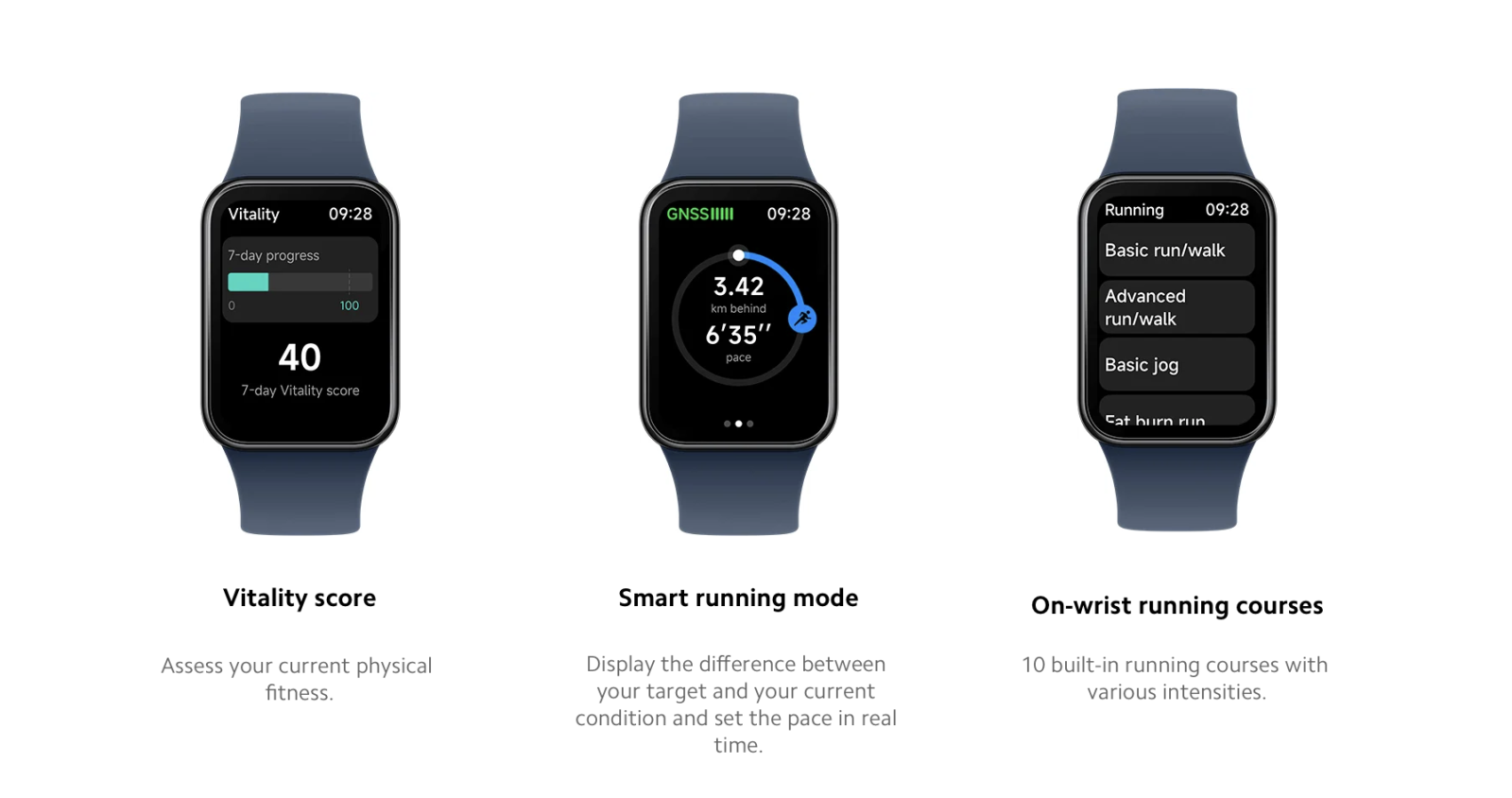
The Fitness Tracking Experience: A Tale of Two Halves
This is where my thoughts get messy, much like Xiaomi’s approach. The Band 8 Pro delivers decent basic activity tracking with a noticeable upgrade in GPS accuracy over many competitors. Here’s where it starts falling apart:
- Heart Rate: Questionable During Workouts: While daytime and resting heart rate monitoring seemed accurate in my tests, exercise tracking was unreliable. Compared to more premium trackers, it under-reported my average heart rate consistently – a big issue if you’re into zone-based training.
- Hit-and-Miss Insights: The Band 8 Pro provides training metrics like VO2 Max, training effect, and recovery time. Unfortunately, these numbers often seemed far off the mark compared to other wearables. My VO2 Max reading was significantly lower than established baselines, and recovery times seemed wildly exaggerated.
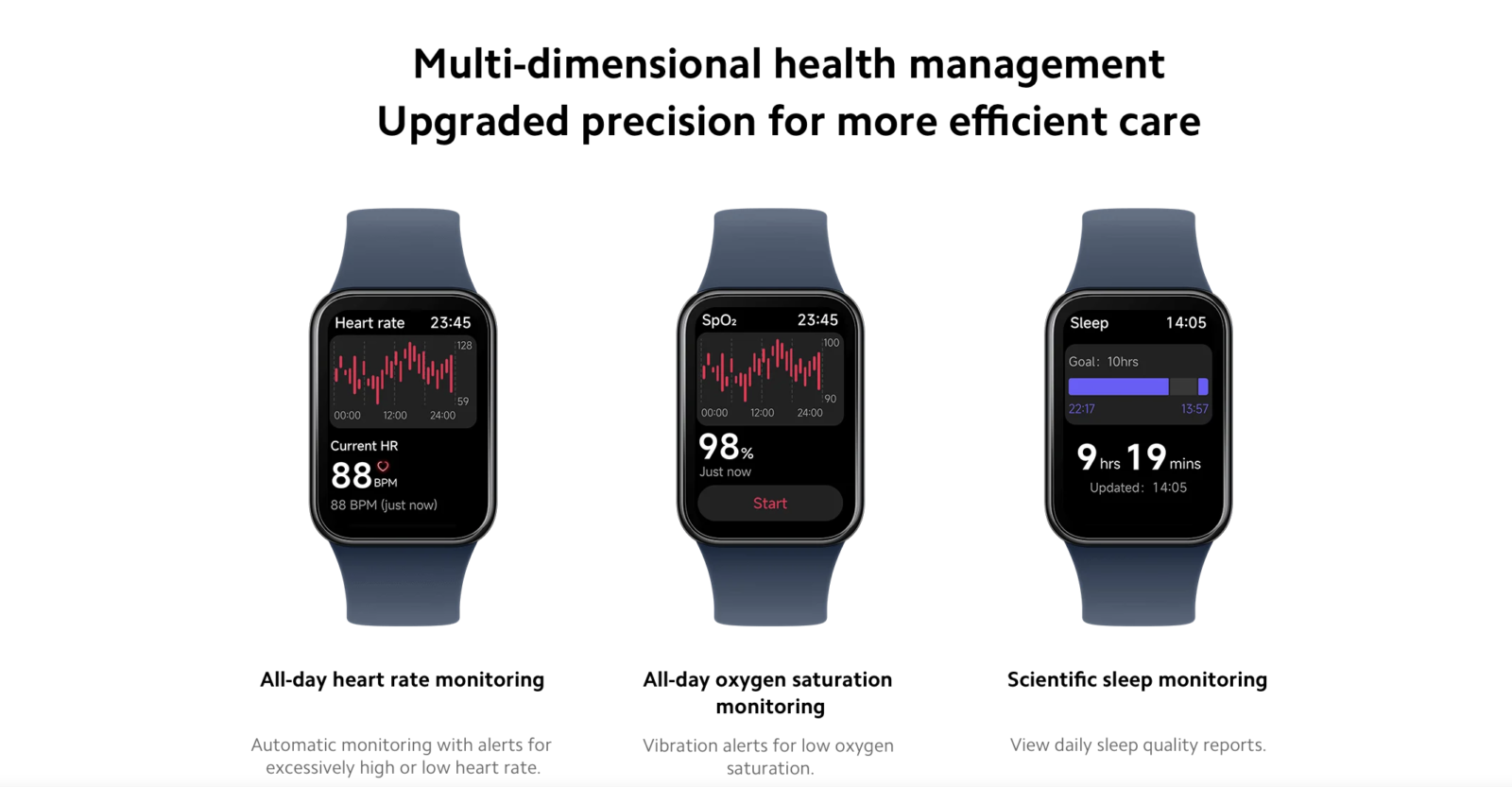
On the flip side, the GPS performance surprised me. Despite lacking fancy multi-band support, the Band 8 Pro locked on quickly and tracked distances in line with my Garmin Epix (Gen 2). That’s a major win if outdoor exercise is your focus.
Health Features: Potential but Underdeveloped
The Band 8 Pro includes a decent array of health sensors: heart rate, SpO2, temperature… the usual suspects. Oddly, Xiaomi keeps most of these disabled by default, citing battery life concerns. In my testing, enabling them had only a minor impact on battery. More importantly, these sensors proved surprisingly accurate compared to more expensive devices.

Here’s the problem: Xiaomi doesn’t do much with this data. It’s all there in the Mi Fitness app, but you won’t find trend analysis, actionable health advice, or even specialized features like period tracking.
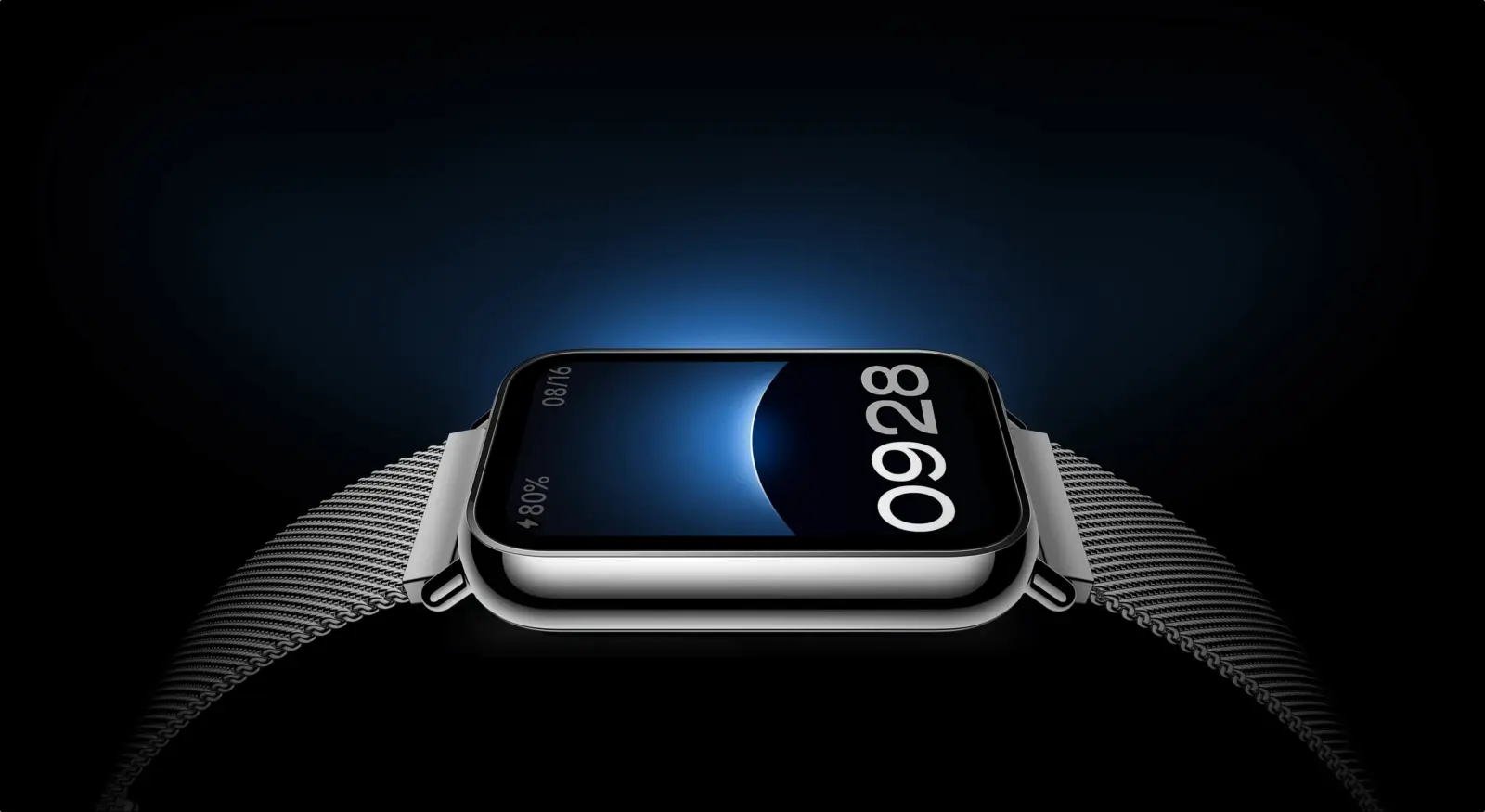
Sleep Tracking: The Basics are Fine
The Band 8 Pro does well with sleep onset/wake times, matching dedicated sleep trackers. However, I’m still not convinced by its sleep stage accuracy, as it doesn’t seem to account for awake time during the night. Features like sleep breathing scores and long-term trends, while present, are underdeveloped.
Impressive Battery, Underwhelming Price Tag: Is it Worth It?
Let’s wrap up with the highlights. The Xiaomi Smart Band 8 Pro shines with:
- Stellar battery life: Expect a week to ten days, easily, even with features enabled.
- Feature-packed for the price: You get a lot for under AED 260
- Surprisingly good GPS: Ideal for outdoor lovers on a budget.
However, the downsides temper my enthusiasm:
- Unreliable workout data: If you’re serious about training, look elsewhere.
- Limited insights: Data without context isn’t helpful.
- No physical buttons: A strange omission at this price point.

Should You Buy It? That Depends…
The Xiaomi Smart Band 8 Pro is a capable fitness tracker with enticing features for its low price. However, the experience is hampered by a few crucial shortcomings. If your focus is casual activity tracking and you want a decent smartwatch-like experience without breaking the bank, the Band 8 Pro is worth considering. But if you crave reliable workout data, advanced health insights, or true smartwatch features, this isn’t your best bet.

